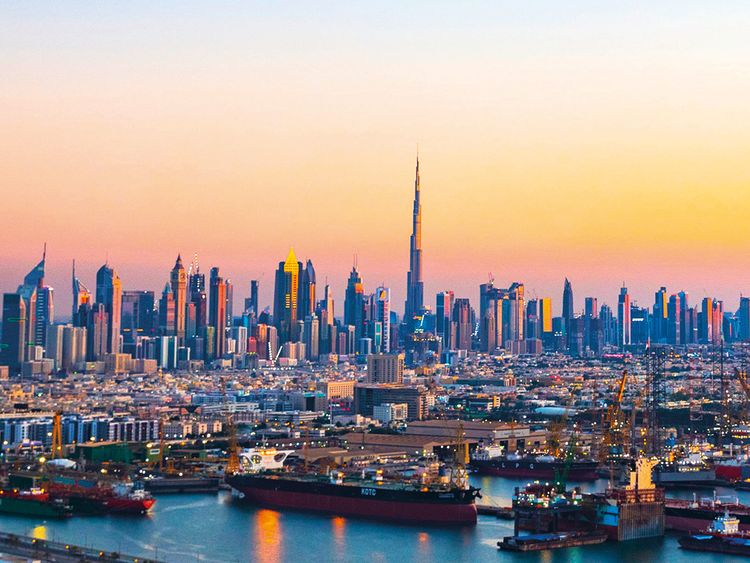
BRICS Membership to Boost UAE's Trade Ties with Global South, Minister of Economy Says
By Sarmad Khan
BRICS membership will boost the UAE economy, strengthen its trade relations with the Global South, and also allow it to maintain economic ties with other major partners globally, the Minister of Economy has said.
The Arab world’s second-largest economy continues to maintain its focus on hitting its annual economic growth target as it “doubles down on trade”, Abdullah bin Touq said on Monday.
“BRICS membership is huge for the UAE,” Mr bin Touq told Bloomberg TV in an interview. “That will add a lot as well to the UAE's multilateralism support to the world. We will … [be] focusing on our global trade, as the UAE has always been as a global [trade] hub.”
As well as boosting its multilateral trade relations, the Emirates – through its comprehensive economic partnership agreements (Cepas) – will also continue to develop its trade ties.
“Our Cepa agreements, [such as the ones] with India with Indonesia … we're looking at going to [the] Global South. That's the most important aspect where we are focusing at the moment,” Mr bin Touq said.
“Anybody that is connected with the UAE on the bilateral trade, we will look at how can we grow the trade by 10 folds.”
The BRICS bloc – comprising Brazil, Russia, India, China and South Africa – invited the UAE, Saudi Arabia, Egypt, Iran, Ethiopia and Argentina to join the group last week.
The debate over expanding the bloc's membership was at the top of the agenda of the three-day summit in Johannesburg, which concluded on Thursday.
President Sheikh Mohamed praised the move.
“We respect the vision of the Brics leadership and appreciate the inclusion of the UAE as a member to this important group,” he wrote on X, formerly known as Twitter.
“We look forward to a continued commitment of co-operation for the prosperity, dignity and benefit of all nations and people around the world.”
The UAE’s non-oil foreign trade hit a record Dh2.23 trillion ($607.1 billion) last year, as the country hastened efforts to cut its dependence on hydrocarbons exports.
This was the first time non-oil foreign trade crossed the Dh2 trillion mark, a more than 17 per cent annual rise, according to government data released in February.
Asked if the BRICS membership meant a pivot away from the UAE’s focus on further developing its trade ties with western nations, Mr bin Touq said he would visit the US in October and added that the UAE remains committed to developing its economic ties with both the world's biggest economy and Europe.
“We have grown to about $23 billion of trade between the US and that’s a growth from $20 billion of last year,” he said.
“There is huge work that's happening with the West.”
The UAE, which joined the New Development Bank in October 2021, is willing to add more funds to expand the balance sheet of the multilateral lender.
About $32 billion or more in funding is financing 100 projects, Mr bin Touq said, declining to give the amount the Emirates plans to commit to the bank.
The BRICS membership will also help the UAE pursue its annual growth target of 7 per cent or more to double the size of its economy by 2031.
The country’s economy rebounded strongly last year from the slowdown caused by Covid-19, with growth momentum extending into 2023.
It grew by an annual 3.8 per cent in the first quarter of this year after a 7.9 per cent expansion in 2022, boosted by a sharp growth in the non-oil sector as it continues to push for diversification.
Non-oil gross domestic product rose 4.5 per cent, year on year, to Dh312 billion.
this article originally appeared at www.thenationalnews.com
